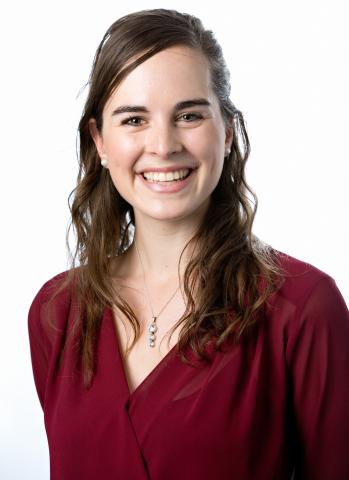Profile of Talia da Silva
Talia is a PhD student in the Geotechnical and Environmental Research Group

Background – how did you get into Engineering?
As a high school student I was interested in maths and science, and engineering appealed to me as a career path where I could put these interests into practice. Fundamentally all engineers solve problems - and I wanted be involved with problem solving and addressing the needs and challenges facing society.
I was specifically attracted by civil engineering, as I am a very pragmatic person and the tangible projects that civil engineers are involved with appealed to me. I have always loved the outdoors and nature, and was interested in civil engineering as a way to understand and harness the powers of the natural world in a way that is beneficial to society whilst still being able to protect the environment.
My father was also involved in the construction industry so I was exposed to this from a young age and I guess this must have influenced me in some way too!
What are you doing now and what are your plans for the future?
I am currently in my third year of my PhD in the Geotechnical and Environmental Research Group in the Department of Engineering. My research project looks at the behaviour of soils in response to the formation of voids, and how we can reinforce the soil to span the void. The application of the research is for the development of more resilient infrastructure in areas where the potential for void formation occurs such as sinkholes or the collapse of abandoned mines.
I like working in teams of motivated people and my ideal plan for the future would combine an interest in being involved in the design and delivery of geotechnical engineering projects with an aspiration to teach and inspire future generations of engineers.
What motivates/interests you?
As a civil engineer, I am motivated by the very practical way in which I feel I am able to make a difference and improve the lives of others as a civil engineer. I have heard it said that through the provision of clean water and sanitation, civil engineers have saved more lives than doctors. I don’t know exactly how true this is, or if one could quantify it in any way, but this kind of mentality that as engineers we are able to make broad scale impacts on a community and significantly improve their lives really motivates me to keep going and to encourage others to join the profession!
As a researcher, I am motivated by trying to understand exactly how things work and trying to find a simple way of describing what we see happening. We live in a complex world, and looking for patterns and trends helps us to make more efficient designs and use the finite resources available to us more wisely.
How have you managed to balance family life and other interests with your career?
Balance is a tricky concept as there are always times when things in one area will demand more of us, either in the professional or personal spheres. I find it important to dedicate time to my work, whilst being aware that work will always feel more urgent than anything else so actively stepping back and taking time to travel, read and enjoy the atmosphere and other opportunities that being in Cambridge is able to offer.
Having a supportive network of friends and family helps to keep me grounded and focused, so I try and ensure I am spending enough time with them as ultimately it is the relationships around me that will sustain me in the long term.
I also enjoy keeping active and being outdoors and getting some fresh air and sunshine (when possible…) as this helps keep my mind clear and keep me positive. Cambridge is a beautiful place to run and walk, and I have also taken an interest in rowing with my college club in my time here.
Do you have any role models?
As a young graduate engineer I was lucky to have many fantastic colleagues and mentors in the company I was working at after completing my undergraduate degree. In particular Jabulile Msiza, Jonathan Shamrock, and Dr. Nico Vermeulen, modelled for me what I would aspire to be as a Professional Engineer maintaining a deep curiosity and desire to keep learning. As a woman, Jabulile was an important role model to me in shattering the misconceptions of women in engineering – particularly on site!
Two former university lecturers of mine whom I have maintained contact with now into my own research career, Prof. SW Jacobsz and Prof. Elsabe Kearsley, inspire me with their passion and dedication to research and academic excellence. As head of the department and president of the South African Institution of Civil Engineering, Prof. Kearsley clearly demonstrated that women have a place at the top of the civil engineering institutions too.
Personally, I am inspired by my parents and their commitment they have made to my education and their unfailing support. They never had the opportunity to go to university themselves, and have modelled sacrifice and dedication in a way that I can only aspire to match!
Do you have any advice for women who are considering pursuing a career in Engineering?
I am surprised how often I am encountered with the response “Engineering?! Are there any women in your field?” when telling people about my profession. Do not be held back or discouraged by the view that Engineering is a man’s world. It most certainly is not, and more and more women are thriving and excelling at the top levels of research and industry in Engineering. We are changing and moulding the profession as we go: come and be a part of the change!
